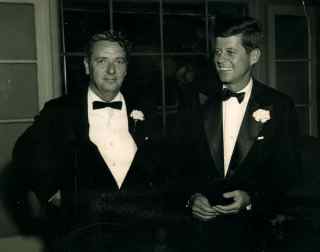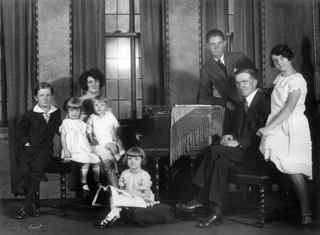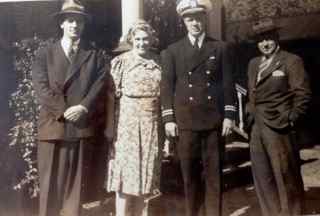The following is an excerpt from a work in progress...
RIVERRUN
Most of the tenants at 1535 Undercliff Avenue were Jewish. Perhaps other Irish families besides ours lived there but I don't remember them. In the 1950s and 60s that part of Highbridge in the Bronx, a series of cliffs overlooking the Harlem River facing the northern end of Manhattan, was largely middle class. An adjacent pair of tenements housing poor Italians often in trouble with the law and a massive project complex across the way only underlined the rest of the neighborhood's relative prosperity. Our building, the standard six stories high, boasted a long green canvas awning flanked with flowering shrubs and a cavernous lobby replete with oriental rugs and polished brass mailboxes. The doorman and the elevator men, lovely gents who lived in Harlem, wore uniforms with brass buttons.

Our spacious three-bedroom apartment on the top floor rented for ninety-eight dollars and fifty cents a month. My father was the United States Congressman representing the district and his salary back then was $22,500 a year. To the best of my knowledge he was an honest man immune to graft and yet with that income he was able to keep the apartment, feed and clothe his four children, put them through private Catholic schools, hire a live-in maid who cooked after my mother died, and have a car and driver while making frequent overnight trips to Washington DC and sharing the rent each summer with his father-in-law on stately rambling houses behind the dunes of Southampton, Long Island.

These early memories feel old enough to be something I've read rather than lived through. They come to mind because at dawn this morning, finishing the most recent biography of James Joyce by Gordon Bowker, I learned that Joyce had helped at least fifteen individuals of Jewish origin to escape from the Nazis before he fled France at the beginning of the Second World War. This was new to me. I had always thought of him as being unusually selfish and self-absorbed during those terrible times, but it seems he was merely private and did the best he could to do the right thing.

During my early years in the Bronx I heard many anti-Semitic remarks tossed across the dinner table at the house of my mother's family. My maternal grandfather was a New York State Supreme Court Judge who lived with his large brood in a handsome three-story house on Woodycrest Avenue in my father's district. My mother's younger brother, a handsome man with a nervous disposition who had attended Annapolis and then became a lawyer, often felt a need to blame the Jews for just about everything. He referred to them, casually, using words not fit to print here, and I don't recall anyone ever reprimanding him for it. I never heard my father or any of his brothers saying anything mean like that. To this day, given how well my parents got along, I do not understand why such behavior was acceptable in one household but not in the other. In my mother's world Jews were Christ-killers to be feared and ridiculed. In my father's world Irish and Jews mixed together like the eggs and kidneys he chopped together on his plate every morning. My father, whose parents were born a village apart in County Clare, joined the U.S. Navy and fought in WWII and was aboard a ship that took part in the invasion of Normandy. His love for the United States, its laws and institutions, had an immigrant's fervor.

In our building there lived two women with numbers tattooed onto the underside of their forearms. The numbers only appeared in the warm seasons of the year when the women favored sleeveless dresses. One of them was old and my sense of her is dim, but the other was attractive and in her late forties, thin and tall and distinguished looking, who was a teacher at a nearby Public School. I remember being with her in the elevator on a number of occasions staring at the numbers on her arm, and her noticing and smiling at me. The smile had nothing to do with the reason I was staring. The smile was one she would give any child looking at her. What I mean to say is that she did not expose her arm with pride, or with shame either. It was simply there and I, she knew, was just a little Irish lad she did not have the time or inclination to explain things to.
